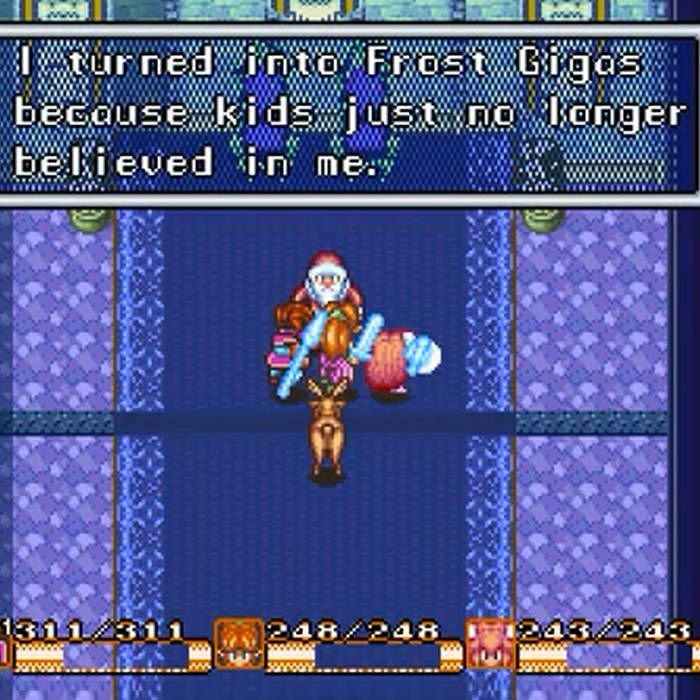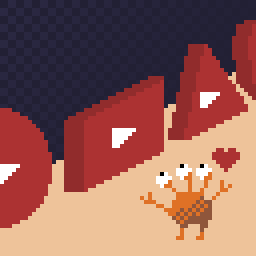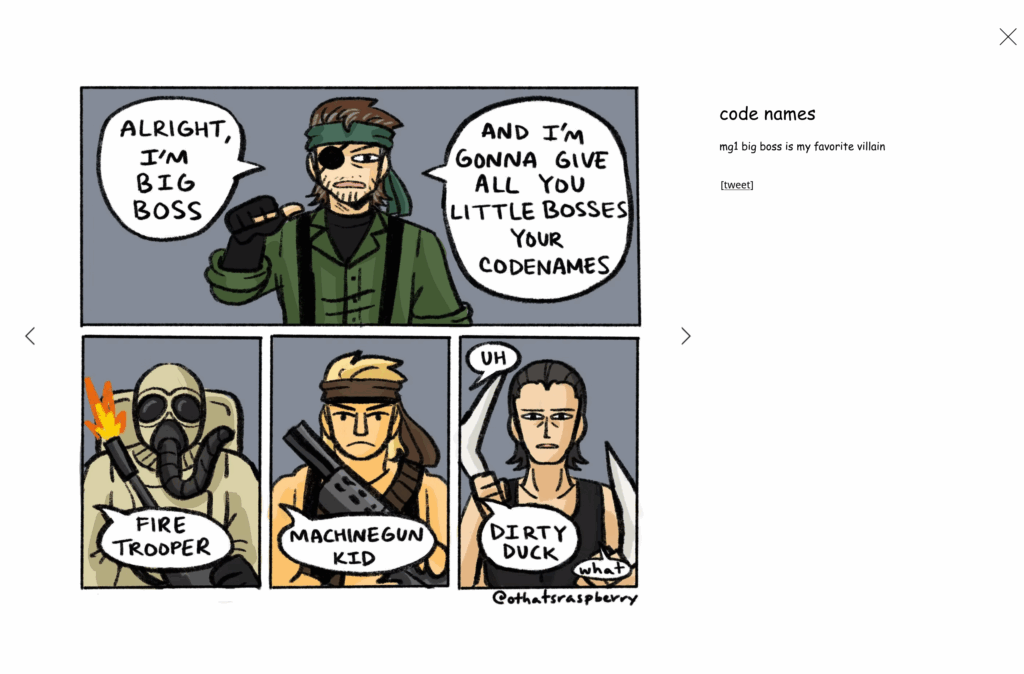Bluesky only released their Saved Posts feature about three months ago, but I’m such a link packrat that there’s plenty there to fill a multilink post for 2025. I hope you find some interesting things in here!
@blueribbs.bsky.social and their magic bikini comic.
@gohbilly.bsky.social presents the babies (from the Babalities) of Mortal Kombat:

@shcontest.bsky.social, the account of the yearly Sonic Hacking Contest, and their thread of winners and honorable mentions of the 2025 contest.
@katch.bluesky.social enjoyed Aiden Moher’s book on JRPGs, Fight, Might, Items.
@edwardodell.bsky.social made a post that’s only very slightly game-related, but is hilarious, imagining if Orson Welles found out about Dragonball-Z:
@johnlearned.bsky.social links to shmuplations’ translation of an archive of Hideo Yoshizawa tweets about NES Ninja Gaiden.
@gamehistoryorg.bsky.org presents unused voice lines from MLB Slugfest 20-03 that were rejected by Major League Baseball.
@raycarrot.bsky.social explains how Rayman’s password system works.
@tykenn.games is working on a project called “Trees Hate You,” and, well, see for yourself.
@jongraywb.bsky.social found a hilarious and tragic caption to someone in a Kirby suit on the news.
@thinkygames gave us a talk by Patrick Traynor, creator of the mindtwisting puzzle game Patrick’s Parabox, and how that game was programmed. Hey, I kind of know him!
@historyofhyrule.com, a great account generally, presents the originals of some of the Legend of Zelda manual artwork.
@skeet.bets calls out one of the more evocative Dwarf Fortress bug reports:

@jasonkoebler.bsky.social notes one of the most significant problems with virtual pinball tables.
@kekeflipnote.bsky.social, a.k.a. Kekeflipnote, a popular artist who uses Nintendo’s DSi Flipnote app as their medium, posts Kirby’s reaction to a photo of a highly questionable part of Kirby-licensed fuzzy slippers.
@spacecoyote.com, a.k.a. Nina Matsumoto, shows off her Undertale artwork for the cover of Famitsu!
@castpixel.bsky.social has great mockup pixel artwork for a fictional Gameboy Pac-Quest game, starring “Pac-Girl,” who seems to be intended to be a younger Ms. Pac-Man:

videogameesoterica.bsky.social notes that a fan translation of SEGAGAGA, one of the last official Dreamcast games and a weird and hilarious museum of Sega content, is nearing completion.
kriswolfhe.art (Bluesky) reminds us that, whatever the game’s faults might have been, judging by how the title character was drawn, the character artist for the Grinch GBC game was suspiciously into his subject.
fluffcopter.bsky.social, on a weird interaction in Caves of Qud that I’m not sure if they’re kidding about or not. They “poured warm static on my dog, it turned into a dromad trader that comes with guards and items. They are all my dog, the whole trade party and merchandise. I convinced my dog to sell me my dog for free while my dog, my dog, my dog and my dog were standing guard.”
chrisdeleon.bsky.social warns us not to lose faith in Santa Claus, or he’ll turn into a monster:

And, most recently, almondsquirrel.bsky.social reminds us that Disney Solitaire, a game with dark patterns, real money transactions and lootboxes, is PEGI rated 3+, while Balatro has none of that, but is rated 18+ because of its nebulous Poker theming.









